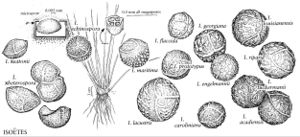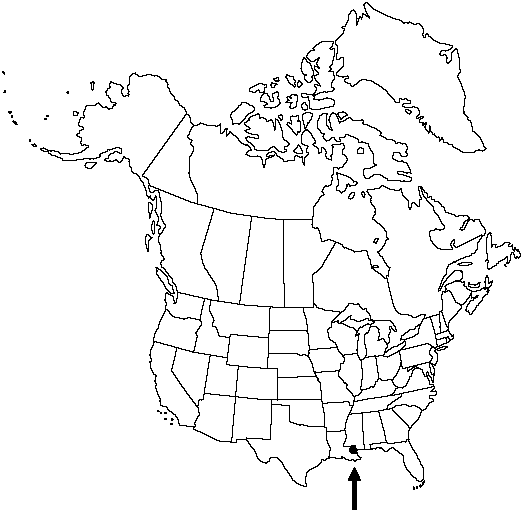Difference between revisions of "Isoëtes louisianensis"
Sida 5: 129. 1973.
FNA>Volume Importer |
imported>Volume Importer |
||
| (2 intermediate revisions by 2 users not shown) | |||
| Line 46: | Line 46: | ||
|publication year=1973 | |publication year=1973 | ||
|special status= | |special status= | ||
| − | |source xml=https:// | + | |source xml=https://bitbucket.org/aafc-mbb/fna-data-curation/src/2e0870ddd59836b60bcf96646a41e87ea5a5943a/coarse_grained_fna_xml/V2/V2_515.xml |
|genus=Isoëtes | |genus=Isoëtes | ||
|species=Isoëtes louisianensis | |species=Isoëtes louisianensis | ||
Latest revision as of 21:23, 5 November 2020
Plants aquatic, emergent. Rootstock nearly globose, 2-lobed. Leaves evergreen, bright green, pale toward base, spirally arranged to 40 cm, pliant, gradually tapering to tip. Velum covering less than 1/2 of sporangium. Sporangium wall brown-streaked. Megaspores white, 500–625 μm diam., cristate with thick ridges; girdle obscure. Microspores brown in mass, 25–35 μm, spinulose. 2n = 44.
Phenology: Spores mature winter–early spring.
Habitat: Creeks
Discussion
Isoëtes louisianensis is known from drainage streams in St. Tammany and Washington parishes in southeastern Louisiana. Based on the reticulate texture of the megaspore, it is possible that I. louisianensis represents an allotetraploid with I. engelmannii as one of its parents. Isoëtes louisianensis may represent I. engelmannii x melanopoda (B. M. Boom 1982). Spores are uniform in size and texture and readily germinate in culture.
Of conservation concern.
Selected References
None.

